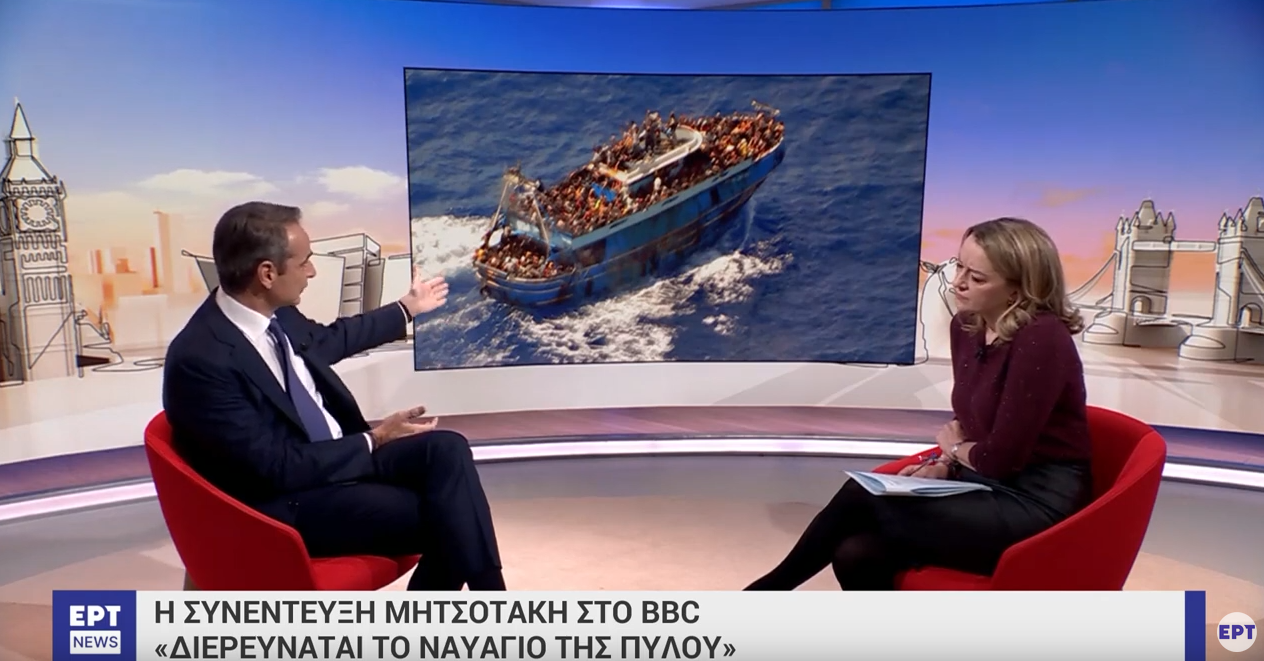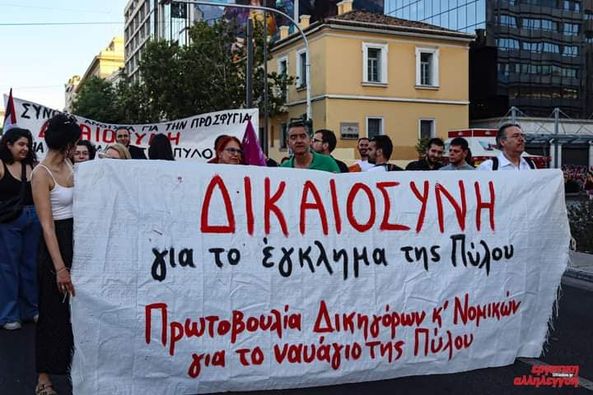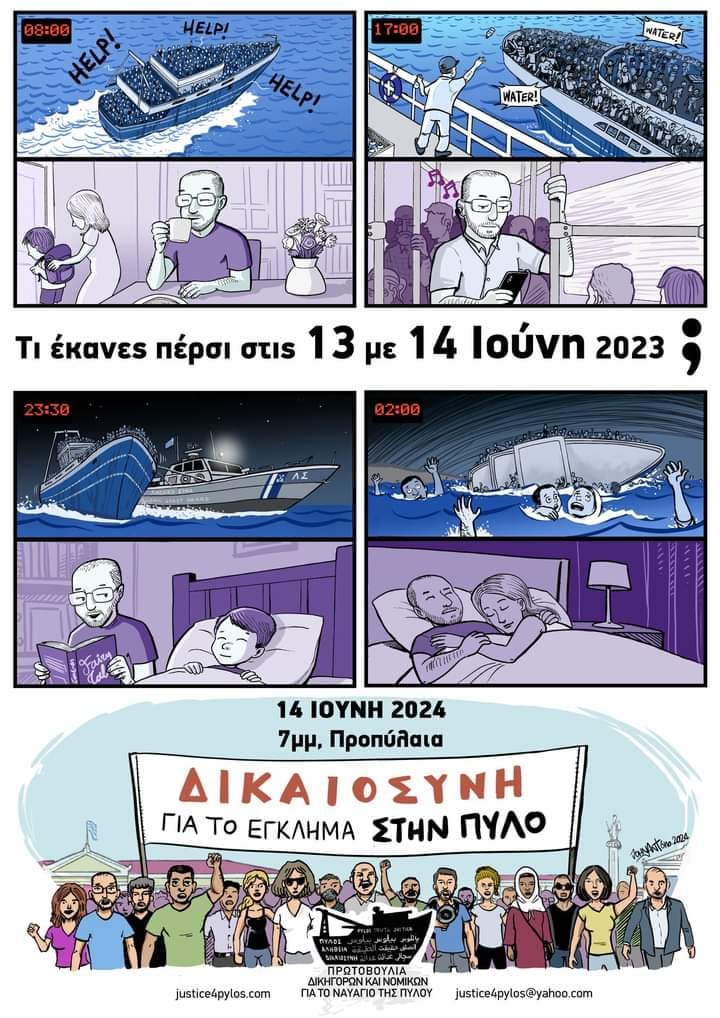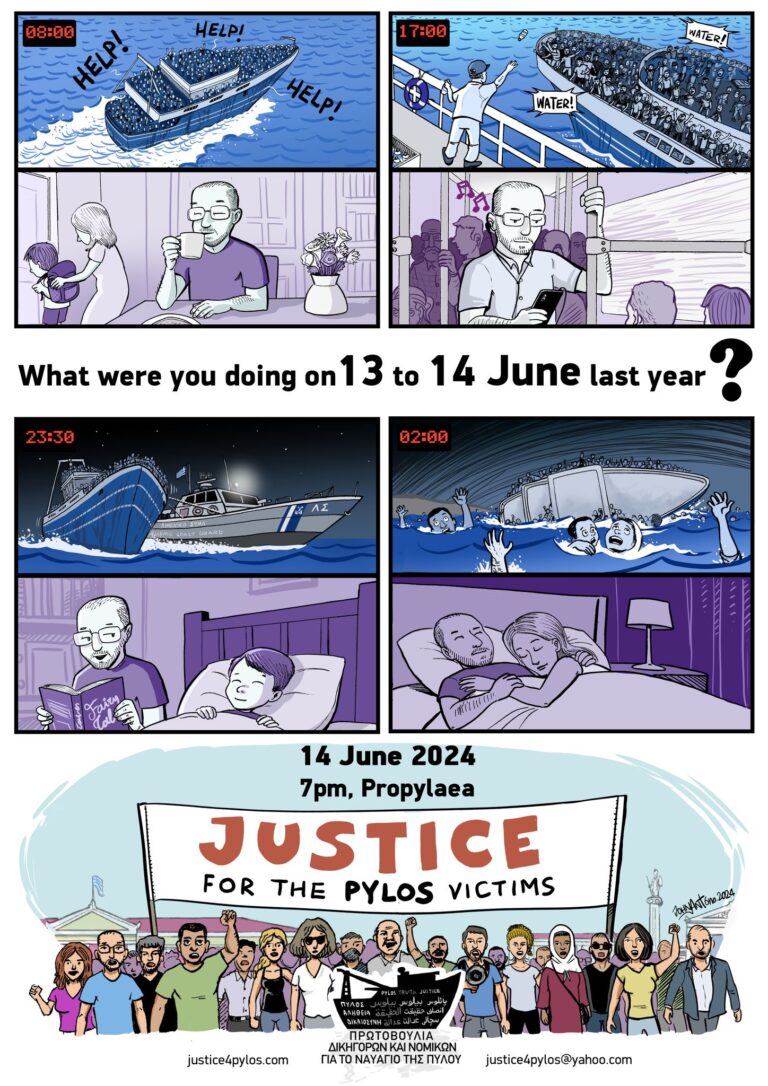Press Release from the “Initiative of lawyers and jurists for the shipwreck of Pylos” in response to statements by the Greek Prime Minister on BBC (28/11/2023)
In his recent interview (26/11/2023) on BBC, Mr. Kyriakos Mitsotakis gave the following response, when asked about the deadly Pylos shipwreck (c.f. relevant statement available at https://www.primeminister.gr/en/2023/11/26/33095 ):
‘We’re investigating this particular incident… At the same time, I’ve been very open and forthcoming that we feel that we have a right to intercept boats at sea and at the same time, encourage these boats to return to the coast from where they left.’
It is regrettable that the Prime Minister himself encourages practices of deterrence – pushbacks, which have endangered human lives, as shown in a series of independent and impartial investigations.
It is these kinds of practices that have led to the Pylos shipwreck. The Initiative of Lawyers and Jurists for this specific shipwreck has supported the survivors – victims of this tragedy. 40 of them filed a criminal complaint with the Piraeus Maritime Court against any responsible party, for negligence in initiating a search and rescue operation, as well as for the attempted towing of the vessel towards an unknown destination outside Greece’s jurisdiction, and for delays in initiating a rescue operation even after the capsizing and sinking of the vessel.
In the same interview, when shown a photograph of the overcrowded vessel, Mr. Kyriakos Mitsotakis noted:
‘It is very difficult -you just look at this photo- to do a lot about an overcrowded boat. We asked the boat whether they wanted assistance. They refused any assistance. They wanted to get to Italy. And at the end of the day, we should hold the smugglers accountable, not the Coast Guard that is trying to do its job.’
It is again regrettable that the Greek Prime Minister does not defend the need to protect human life, putting forth two contradictory claims instead: on the one hand, that a rescue operation for such an overcrowded ship was ‘very difficult’, and hence not attempted in the first place; and on the other hand, that those onboard were asked but refused any help.
Both of these claims are unfounded.
1) The Greek authorities could have, if they had chosen to do so, organized a rescue operation, and evacuated the overcrowded Adriana vessel. The conditions were extremely favorable, as the vessel had been detected 15 hours before sinking, appearing visibly overcrowded at first sight. Ample time and resources were available for mobilization (including a large modern 64-meter rescue vessel reported in Gytheio), and the winds during the entire period of detection were weak. However, the Greek authorities never acknowledged the necessity for any rescue operation and even declined assistance from Frontex.
2) The Greek authorities were obliged to organize a rescue operation, as those onboard were in obvious distress – a trigger for a rescue operation according to the obligations outlined in the International Convention on Maritime Search and Rescue (SAR). The assertion that the occupants were ‘asked’ and, according to the Greek Coast Guard, expressed their wish to continue their journey to Italy, even if assumed true (contrary to the survivors’ reports), did not in any way absolve the Greek authorities of their obligation to rescue. This is because, at first sight, the Adriana vessel was obviously unseaworthy. The pronounced instability of the vessel had already been communicated to the Hellenic Coast Guard by both the captain of a passing commercial vessel that rushed to help and the Captain of the Coast Guard vessel, who recorded a pertinent video several hours before the boat sank. There is thus a clear failure to act on the part of the Greek authorities.
In addition, the Greek Prime Minister has himself described the Adriana as a ‘boat that was obviously not seaworthy’ in an interview with Bloomberg on 20/7/2023 (cf. relevant statement available at https://www.primeminister.gr/en/2023/07/20/32213 ).
To highlight the evident contradictions in the claims of the Greek authorities, we appeal to the media to direct a clarifying question to the government spokesperson: What does the Prime Minister mean when he says “we have a right to intercept boats at sea and at the same time, encourage these boats to return to the coast from where they left “? Does this “right” also encompass towing? Additionally, we encourage the media to inquire with the representative of the Greek Coast Guard: During the close monitoring of the Adriana vessel, was the “boat… obviously not seaworthy”? Does the Coast Guard endorse the statement made by the Greek Prime Minister?
As the Initiative of Lawyers and Jurists for the shipwreck of Pylos, we reiterate the need for a prompt and impartial, free from any “public interest” restrictions, and exhaustive investigation into the circumstances of the shipwreck, to uncover the truth, and allocate responsibility to all those involved in the incident from any position and in any capacity.




